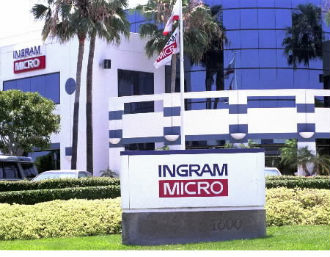 Chartis Research, in collaboration with our research partner BearingPoint, has released a cost-attribution model that financial institutions can use as a diagnostic tool to benchmark their Risk Data, Aggregation and Regulatory Reporting (RDAR) processes.
Chartis Research, in collaboration with our research partner BearingPoint, has released a cost-attribution model that financial institutions can use as a diagnostic tool to benchmark their Risk Data, Aggregation and Regulatory Reporting (RDAR) processes.
RDAR is the largest block of compliance expenditure within FIs and the outfit came up with all sorts of ideas which should be of help for those trying to pitch to such organisations.
The report suggests that choosing the right operational structure for compliance is critical – small, regional reporting platforms deliver lower core spending overall than global reporting platforms, but at a much higher residual cost, and higher compliance costs overall. Integrated platforms delivered the lowest total cost by some margin.
It says that demand is growing for utilities, driven by the relentless need to reduce cost, particularly in peripheral processes – such as capital markets reports for small regional banks – and non-core regions for large international banks. As a result, banks will be able to achieve better-optimised trade-offs between key operational concerns (e.g. centralisation vs localisation) at a lower cost.
“In all scenarios, complexity emerged as a major determining factor of cost – asset managers and investment banks, using simpler, more centralised reporting platforms, fared much better than retail banks, as did those with a smaller geographical footprint. For large, universal banks, the benefits of a fully integrated solution over narrow, regional compliance centres will be material”, the report said.
“Our model has allowed us to isolate specific levers and drivers of cost reduction (and cost intensity), effectively showing which levers can be pulled to what effect. Regarding turning theory into action, this is the crucial next step”, it added.
There are five key organisational levers and the areas of cost impact controlled by them. Of the five, three emerged as being crucial drivers of cost:
- The centralisation of data storage.
- Uniformity of the feed handler environment.
- Availability of APIs.
So, while FIs using integrated platforms for data management have lower overall compliance spending, less efficient regional spenders could still make significant cost gains through the use of APIs, spending significantly less on data input, enrichment and distribution than those without them. The efficient use of feed handlers magnifies merely this positive effect.
You can download the full report here
 Security outfit Nyotron has signed a cloud distribution agreement with Ingram Micro.
Security outfit Nyotron has signed a cloud distribution agreement with Ingram Micro.


















